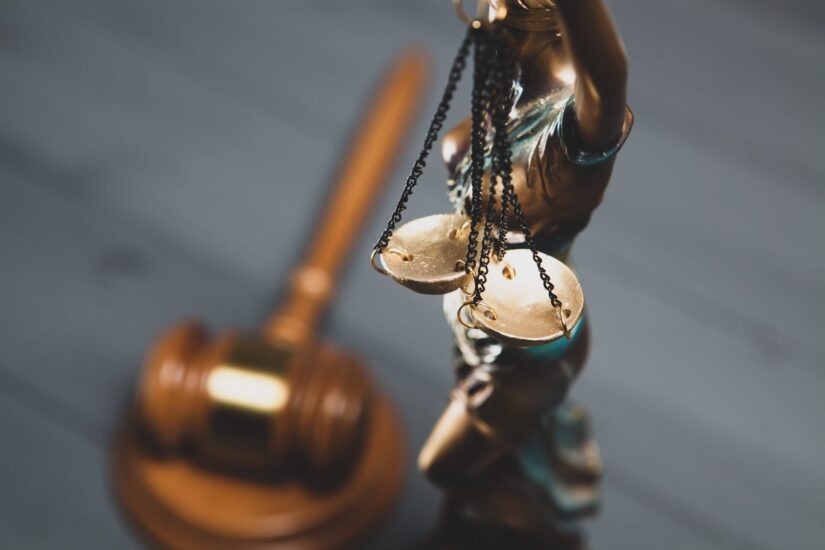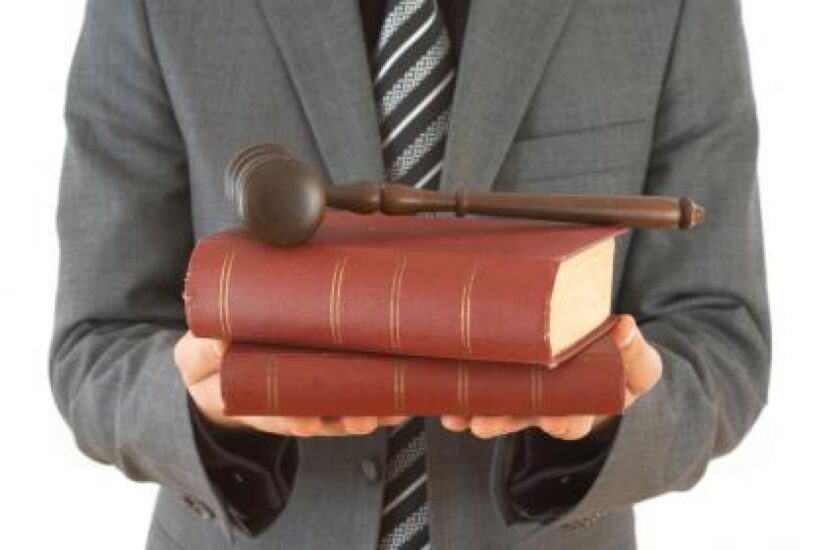
August 26, 2025
Probable cause is a legal standard critical to protecting your rights during arrests, searches, and warrants in Texas. It requires law enforcement to base their actions on clear facts, not assumptions. Here’s what you need to know:
- Definition: Probable cause exists when a reasonable person would believe a crime has occurred or is imminent, based on concrete evidence or observations.
- Key Difference: Probable cause is stronger than reasonable suspicion, which only allows brief detentions.
- Importance: Without probable cause, arrests and searches violate the Fourth Amendment, and evidence may be excluded in court.
- Your Rights: You can refuse searches without a warrant or probable cause, remain silent, and request legal counsel during police interactions.
- Legal Recourse: If probable cause is lacking, you can challenge evidence, request dismissal of charges, or appeal convictions.
Understanding probable cause helps you protect your constitutional rights, especially during traffic stops or arrests. Always consult an attorney if you suspect your rights were violated.
Legal Standards and Procedures for Establishing Probable Cause
In Texas, law enforcement officers must follow specific legal guidelines when establishing probable cause for arrests, searches, and warrant applications. These guidelines ensure that actions are backed by concrete facts and meet legal thresholds. Let’s dive into how officers meet these standards and follow proper warrant procedures.
Legal Requirements for Probable Cause
Texas aligns with the Fourth Amendment’s probable cause standard, which is echoed in Article One, Section Nine of the Texas Constitution. This standard requires more than mere suspicion—it demands a combination of facts and circumstances that would lead a reasonable officer to believe that a crime has been or will be committed. Officers must rely on observations and evidence that any reasonable person in their position would find convincing.
For instance, suppose an officer sees someone stumbling out of a bar at 2:00 AM, notices the smell of alcohol, and watches the individual get into a car. These observations, taken together, could support a reasonable inference of potential drunk driving. Texas law also allows officers to draw reasonable inferences from the evidence when determining probable cause, making context and judgment critical.
How Officers Document Probable Cause
To meet legal standards, officers must meticulously document the facts and circumstances that support their determination of probable cause. This process includes gathering witness statements, recording physical evidence, and noting behaviors that suggest criminal activity.
Texas law also permits citizens to record their interactions with police, provided they don’t interfere with official duties. This transparency can further bolster the accuracy of documentation. Comprehensive records—such as police reports, medical records, and witness accounts—are crucial for the warrant review process. These records not only form the foundation for legal proceedings but also give defense attorneys the opportunity to challenge flawed or insufficient claims of probable cause through motions to suppress evidence or dismiss cases.

Warrants and Probable Cause
Before issuing any arrest or search warrant, Texas courts require a clear demonstration of probable cause. Judges will only grant warrants if the state provides substantial evidence to support the claim. Officers must submit a sworn affidavit detailing the facts that justify probable cause. Importantly, the affidavit must go beyond an officer’s conclusions and present concrete evidence. Even if officers believe probable cause exists, judges have the authority to reject the warrant application after reviewing the affidavit.
Search warrants operate under the same principles. Officers need to show that evidence of a crime is likely to be found at a specific location and must describe in detail the place to be searched and the items sought. Warrantless searches and seizures, on the other hand, are invalid unless officers can prove that probable cause existed at the time of the search. An exception to this rule is the automobile exception, which allows warrantless searches of vehicles if evidence of a crime is likely present.
Additionally, the timing of probable cause hearings is strictly regulated. The U.S. Supreme Court has ruled that individuals cannot be held indefinitely without judicial review, requiring that probable cause hearings occur within 48 hours to meet constitutional standards.
When law enforcement properly establishes and documents probable cause, it grants them the legal authority to make arrests, conduct searches, and gather evidence. However, failing to meet these standards can lead to evidence being excluded and charges being dismissed. Proper adherence to these legal benchmarks is not just a procedural formality—it’s a cornerstone of justice.
Case Studies: Probable Cause Examples in Texas
Understanding how probable cause is applied in real-life scenarios helps clarify its role in criminal cases. Texas courts rely on specific evidence and circumstances to determine whether probable cause exists. These examples illustrate what meets the legal threshold and what falls short, offering practical insights into how the law is applied.
DWI Arrests and Probable Cause
In Texas, probable cause in DWI cases often hinges on a combination of observed behaviors and physical evidence—such as erratic driving, slurred speech, or other signs of impairment.
For instance, consider a situation where an officer observes a driver swerving between lanes and nearly hitting another vehicle. During the subsequent stop, the officer notices the driver’s slurred speech and bloodshot eyes. Together, these observations provide sufficient grounds for a DWI arrest.
Another common scenario involves drivers who admit to drinking before getting behind the wheel and then fail field sobriety tests. These admissions, combined with poor performance on standardized tests, strongly indicate alcohol impairment and establish probable cause.
Similarly, an officer stopping a speeding vehicle might detect a strong alcohol odor and see open containers in plain view. The traffic violation, combined with these observations, creates a solid basis for probable cause.

Drug Offense Arrests and Probable Cause
Probable cause in drug-related cases often hinges on specific facts that would lead a reasonable person to believe illegal substances are present.
Court rulings provide clear examples of this. In Brunson v. State, the Supreme Court of Arkansas found that the smell of marijuana coming from a car was enough to establish probable cause for arrest. Similarly, in State v. Mitchell, the Supreme Court of Wisconsin ruled that the odor of burned marijuana and visible smoke in a vehicle justified arresting both occupants for possession. Another case, State v. Hernandez, decided by Florida’s District Court of Appeal, upheld that the smell of marijuana alone warranted searching everyone present in the vehicle.
Additionally, surveillance and reliable informant tips can support probable cause. However, vague or unverified information typically won’t hold up.
Challenging Probable Cause in Court
Defendants often challenge probable cause when it’s insufficient or improperly established. Such challenges can lead to evidence being excluded or charges dismissed. For example, in Brown v. State, the Texas Court of Criminal Appeals overturned a conviction for marijuana possession. The court ruled that the officer’s warrantless arrest, based on a general suspect description and vague observations, lacked probable cause.
Under Texas Code of Criminal Procedure 38.23, evidence obtained in violation of constitutional or statutory protections can be excluded from court, even if it might otherwise be admissible federally. Successfully challenging probable cause often involves scrutinizing law enforcement’s observations, ensuring they’re based on concrete facts rather than assumptions or hunches.
When probable cause is effectively contested, it can lead to suppressed evidence, reduced charges, or even case dismissal. This highlights the importance of examining law enforcement actions closely, setting the stage for further discussion on rights during arrest in the next section.
Rights During Arrest and Legal Options for Lack of Probable Cause
If you’re arrested without proper probable cause, it’s essential to understand your constitutional rights and the legal options available to protect yourself. Texas law outlines specific protections during arrests, and there are steps you can take if those protections are violated.
Your Rights During Arrest
The Fifth Amendment guarantees your right to remain silent during any interaction with law enforcement. You are not obligated to answer questions beyond providing basic identification details. To exercise this right, you can say, “I invoke my Fifth Amendment right to remain silent and request an attorney.” Additionally, if you are arrested, officers must inform you of your Miranda rights.
The Fourth Amendment protects you from unlawful searches and seizures. Without a warrant or probable cause, you can refuse consent to searches of your person, belongings, vehicle, or home. If an officer asks for permission to search, you can clearly state, “I do not consent to this search.” During any police encounter, remain calm, document key details, and avoid actions that could escalate the situation.
You also have the right to legal representation once you’re detained. Request an attorney immediately and avoid making any statements until your lawyer is present. Anything you say before consulting legal counsel could be used against you in court. If your rights are violated during the arrest, there are legal remedies available to address these violations.
Legal Options for Insufficient Probable Cause
An arrest made without adequate probable cause violates your Fourth Amendment rights. If this happens, there are several legal steps you can take:
- File a motion to suppress evidence: If your rights were violated during the arrest or search, any evidence obtained may be inadmissible in court under the exclusionary rule, often referred to as the “fruit of the poisonous tree” doctrine.
- Challenge the chain of custody: In cases involving physical evidence, like drugs, prosecutors must show that the evidence was properly handled from the time it was seized to its presentation in court. Irregularities in this process could lead to evidence being excluded.
- Request a dismissal of charges: If critical evidence is suppressed and the remaining evidence is insufficient for prosecution, your attorney can file a motion to dismiss the charges.
- Appeal a conviction: If you’ve already been convicted, you can challenge the sufficiency of the evidence or procedural errors through the appeals process.
These legal options are key to building a strong defense, and having an experienced attorney by your side is essential.
The Role of Legal Representation
A skilled criminal defense attorney plays a vital role in protecting your rights. They will thoroughly review your arrest for any Fourth Amendment violations and craft suppression arguments to challenge the prosecution’s case. This may involve examining officer testimony, analyzing search warrants, and reviewing video or body camera footage for inconsistencies.
Acting quickly is critical. An attorney can preserve evidence, interview witnesses while their memories are fresh, and develop a defense strategy tailored to your case. For example, in a DWI case, they might question the procedures used during field sobriety tests or challenge the accuracy of breathalyzer results. In drug-related cases, they could focus on the validity of the search warrant or the credibility of informants.
The Napier Law Firm specializes in defending against criminal charges, including DWI, drug offenses, assault, and more. They offer 24/7 availability and free consultations, providing personalized strategies to protect your constitutional rights. Their detailed case evaluations – covering police reports, witness statements, and evidence – are designed to identify violations that could lead to reduced charges or dismissals. With effective legal representation, you can ensure that your rights are not undermined by insufficient probable cause.

Key Points About Probable Cause in Texas
Understanding probable cause is a critical part of safeguarding your constitutional rights during any interaction with law enforcement in Texas. The Fourth Amendment plays a key role here, as it sets the foundation for determining whether police actions are lawful or if they overstepped, potentially leading to case dismissals.
What Is Probable Cause?
Probable cause is based on facts or circumstances that would lead a reasonable person to believe a crime has been—or is about to be—committed. It’s important to note that this is different from reasonable suspicion, which allows officers to make brief stops but requires less evidence than probable cause.
How probable cause is established can vary greatly depending on the case. It might involve different types of evidence or indicators, all of which need to be clearly documented. If you suspect that your arrest lacked sufficient justification, documenting the details of your encounter is vital. These complexities highlight why consulting with an experienced attorney is so important.
Why Legal Help Matters
If you believe your Fourth Amendment rights were violated, getting a criminal defense attorney involved as soon as possible is essential. They can assess whether the officers acted improperly and craft a defense strategy—such as filing motions to suppress evidence—to challenge any violations.
Timing is everything in these situations. A skilled attorney can act quickly to gather evidence, interview witnesses, and identify procedural mistakes that may have occurred during your arrest.
The Napier Law Firm offers expertise in handling cases involving probable cause disputes, including DWI, drug charges, assault, and other criminal offenses. They’re available and provide free consultations, offering immediate support to defend your constitutional rights and work toward the best possible outcome.
Don’t wait—reach out to an experienced attorney right away to ensure your rights are fully protected.